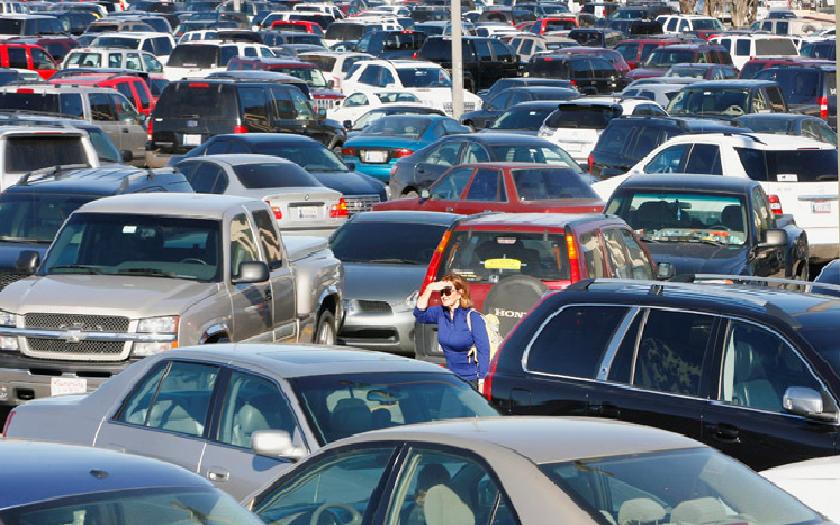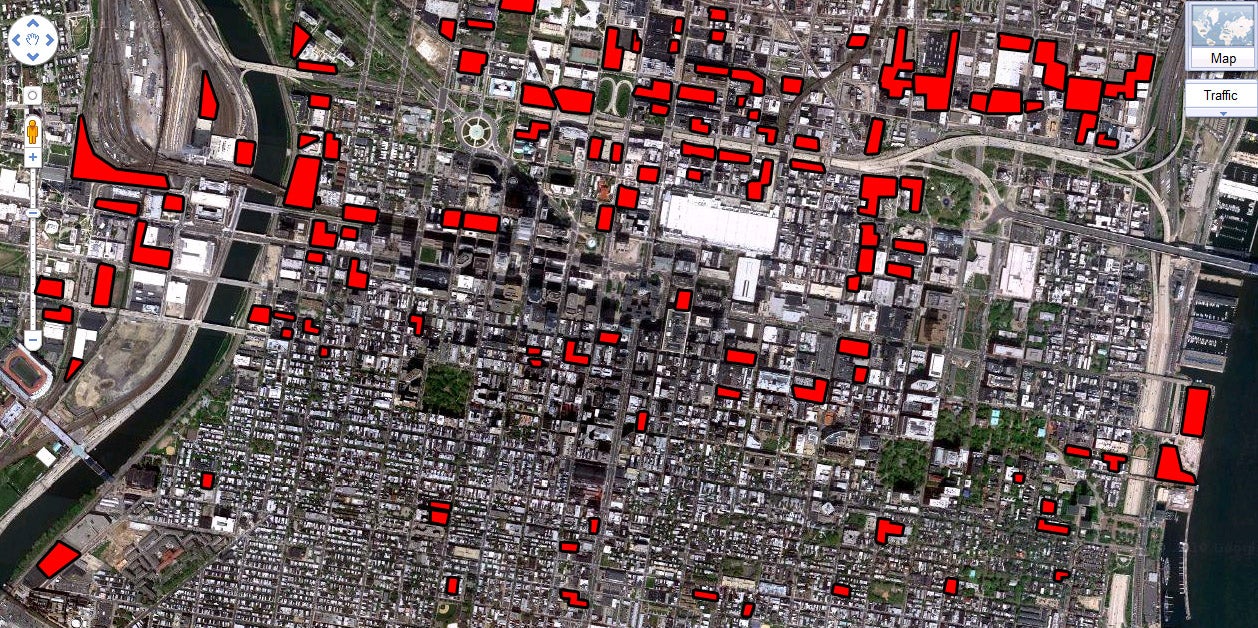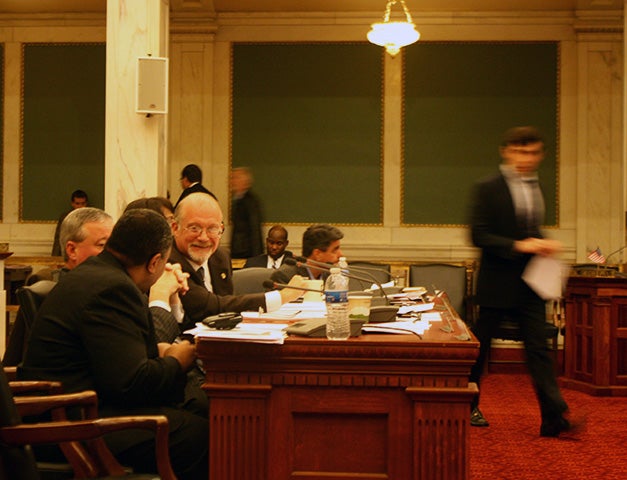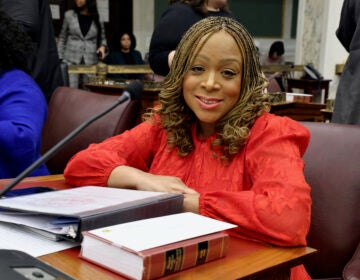Bill would increase parking requirements, decrease density standards in multifamily districts
Against the protests of small-project developers and urban planning advocates on Wednesday, City Council’s Committee on Rules recommended Councilman Brian O’Neill’s bill that would require more parking and bigger lot sizes in the city’s densest residential zoning districts.
The bill raises the minimum lot area for dwelling units from 360 square feet to 480 square feet, except in the CMX-2.5 district, which keeps the 360-foot minimum. It also requires 3 parking spaces for every 10 units in RM-1 and CMX-2/2.5 zoning districts, where the current code has no parking requirement. An amendment was added to the bill Wednesday which imposes special parking controls for North Central Philadelphia, between 9th Street, Girard Ave., 20th Street, and Lehigh Avenue. In that area, one parking spot will be required for every two dwelling units.
Earlier this month, the Planning Commission recommended approval of O’Neill’s bill, but with some small amendments, stating that the 3/10 parking requirement would not kick in until a 4th unit is built. Under the Planning Commission’s suggestion, a developer could build a 3-unit development without having to provide a parking spot; a 4-unit building would require at least one parking space.
At Wednesday’s Committee hearing, some developers said that the bill would delay projects that are already in the works and add unnecessary regulations to the new zoning code that was adopted by City Council last December, and which has only been in effect for two months. At the same time, planning advocates said the regulations are inappropriate in a dense urban context, while failing to effectively deal with parking congestion.
Mitch Wolfson, Peter Crawford, and Nick Pizzola, members of the Temple Area Property Association (TAPA), testified in opposition to the bill. Pizzola said that if the bill passes, he’ll be unable to build as a matter of right a project he is currently working on in Port Richmond. Crawford called the legislation a “direct attack” on the work of the Zoning Code Commission, which rewrote the city’s zoning code over a period of more than four years with public input from interest groups and citizens across Philadelphia. The TAPA developers would be particularly affected by the special controls for North Philadelphia, which are even stricter than the parking requirements O’Neill’s general amendments would add.
Anne Fadullon, a Dale Corporation developer, vice president of the Building Industry Association, and newly appointed member of the Civic Design Review Committee, called the parking requirements “excessive,” and said they don’t reflect good urban development policy. She said the BIA opposes the bill both as introduced and as amended by the Planning Commission.
Richard DeMarco, a land use attorney and former Zoning Code Commissioner, said that, even leaving aside the merits of the bill, it is “far too early to start reforming the new Code.” He said that changes such as those proposed by O’Neill would best be considered at the one-year anniversary of the code’s enactment next August, at which time the new code requires a comprehensive review of its first year from a handful of city agencies.
DeMarco also argued that the bill would be detrimental to good development in areas where the city wants high density.
“The provision that this bill seeks to significantly alter … was a key provision, which sought to make the only truly ‘multi-family’ classifications in this city a true ‘multi-family’ classification,” DeMarco said, in prepared remarks. “This bill will alter this key provision, which was designed to allow sound multi-family development to occur without Zoning Board review within the proper classifications which are supposed to allow for such development. If you alter those provisions as this bill does, it will upset the delicate balance struck among the community protections and pro-development provisions.”
Ryan Lohbauer, an architect at Stanev Potts Architects, opposes the bill on the basis that forcing developers to provide parking spaces both encourages people to drive and, in turn, adds to congestion, rather than easing it. He told the Committee that adding parking requirements shifts the cost of parking from the driver to the builder and to the community at large.
“The argument against free parking is that you’re imposing the costs of providing it on everybody, regardless of whether or not they drive,” Lohbauer told PlanPhilly, after his testimony. “So you’re subsidizing this good—the good is parking. So what you’re doing is you’re encouraging more people, when they’re evaluating what they’re going to do—Do I take a bike? Do I do a car share? Do I take transit?—the city is making it artificially cheap for them to park. So you’re going to encourage more congestion. It’s a self-defeating policy.”
Members of the Rules Committee listened politely to the witnesses’ testimony, but in the end voted to recommend the District Councilman’s bill. It will get a first reading at the next hearing of City Council.
Contact the reporter at jaredbrey@gmail.com and follow him on Twitter @jaredbrey
WHYY is your source for fact-based, in-depth journalism and information. As a nonprofit organization, we rely on financial support from readers like you. Please give today.








